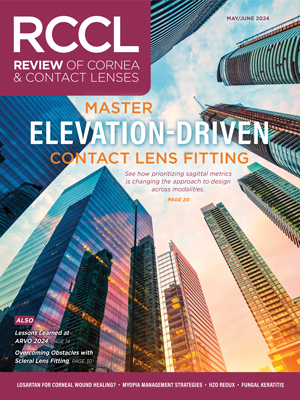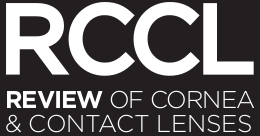• The use of an aspirating speculum on patients with dry eye may actually aggravate and exacerbate the condition, according to a recent prospective study, published in Cornea, that examined 58 eyes of 58 patients who underwent cataract surgery. Half the eyes were treated with an aspirating speculum and the other half with a non-aspirating speculum.
The aspirating speculum group demonstrated significant aggravation by conjunctival staining on day one postoperatively, while no such staining was evident in the non-aspirating group. Additionally, the aspirating group exhibited an increased conjunctivochalasis grade from baseline to post-op day one (25 aspirating eyes vs. 13 non-aspirating eyes).
Moon H, et al. Short-term influence of aspirating speculum use on dry eye after cataract surgery. Cornea. 2014 March. 373-375.
• Bausch + Lomb recently launched a new hydrogen peroxide cleaning and disinfecting solution, PeroxiClear 3%, which it says can provide up to 20 hours of moisture. Additionally, while providing the same disinfecting capabilities of traditional peroxide solutions, the formula neutralizes in only four hours, according to the company. PeroxiClear will hit shelves in April and May 2014.
• Alcon has added toric and multifocal designs to its Dailies AquaComfort Plus line of one-day contact lenses. The new Dailies AquaComfort Plus Toric lenses come in a number of cylinder powers, including -0.75, -1.25 and -1.75 diopters, and offer 10 total axes. The Dailies AquaComfort Plus Multifocal lenses offer distance powers ranging from +6.00 to -10.00 and three levels of add power for both advanced and emerging presbyopes.


